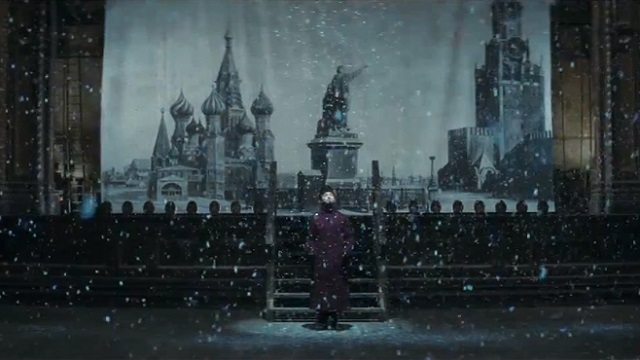In 2005, Joe Wright exploded onto the silver screen with a new adaptation of the Jane Austen classic Pride and Prejudice. Displaying his previous training on music videos, Pride and Prejudice revitalized the traditional stuffed-shirt story with a youthful vigor through modern and assured direction.
Wright’s 2012 adaptation of Anna Karenina was an even more radical depiction of a story about historical royalty, romance and politics. Written by Tom Stoppard (Rosencrantz and Guildenstern Are Dead, Brazil, Shakespeare in Love), this version of Anna Karenina chops through an 8-part nearly-1000 page novel of in just over 2 hours. For a normal director, a tale of a sexually active woman who is torn between multiple lovers in a country torn between two political and moral eras with two different landscapes would be more than enough to chew on on its own. Not satisfied with a straight adaptation, Wright turns the film into a meta-jewelbox stage to smooth over the cracks left by leaving huge chunks of the novel on the floor (as required by cinematic limitations).
In many many ways, Anna Karenina is not a great adaptation of a long novel that encompasses the word epic. In the unkindest cut, Anna seems almost to be reinterpreted as a woman who could not make a decision to save her life. Yet, there’s something fascinating about Anna Karenina and its purposeful staginess and how it differentiates between the thematic divides of the film. Wright makes divisions between the over-the-top material majesty of elite parties and abject poverty of country citizens, the realist dreams of the working poor and the phony drama of the ultra-privileged, and the different ways men can manipulate a woman at the center of it all. Stoppard’s dialogue dances a high wire act that drives the movie through its many themes, and Kiera Knightly does her usual amazing work through a complex character trimmed down.
Anna Karenina streams on Netflix.


